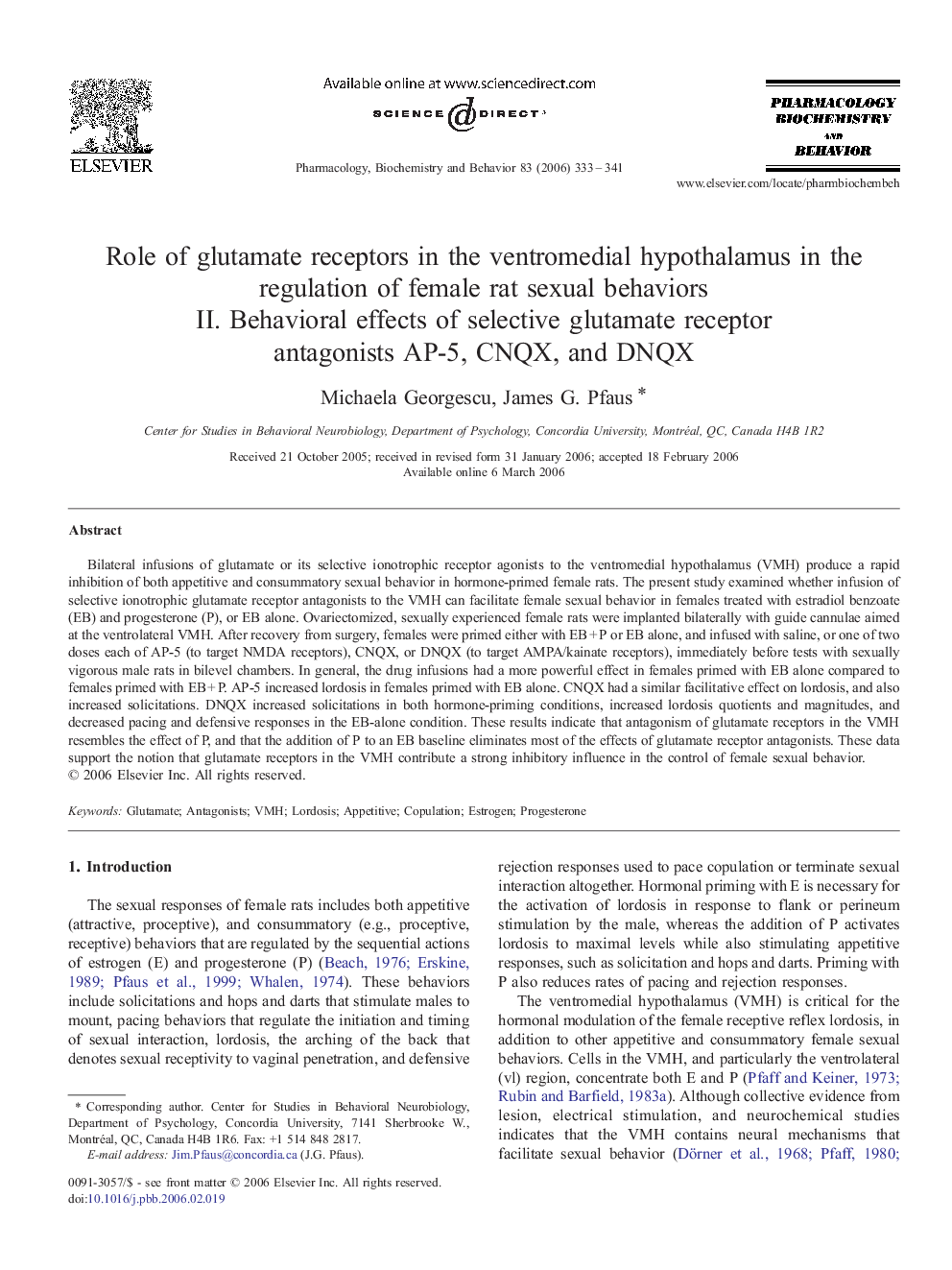| Article ID | Journal | Published Year | Pages | File Type |
|---|---|---|---|---|
| 2014614 | Pharmacology Biochemistry and Behavior | 2006 | 9 Pages |
Bilateral infusions of glutamate or its selective ionotrophic receptor agonists to the ventromedial hypothalamus (VMH) produce a rapid inhibition of both appetitive and consummatory sexual behavior in hormone-primed female rats. The present study examined whether infusion of selective ionotrophic glutamate receptor antagonists to the VMH can facilitate female sexual behavior in females treated with estradiol benzoate (EB) and progesterone (P), or EB alone. Ovariectomized, sexually experienced female rats were implanted bilaterally with guide cannulae aimed at the ventrolateral VMH. After recovery from surgery, females were primed either with EB + P or EB alone, and infused with saline, or one of two doses each of AP-5 (to target NMDA receptors), CNQX, or DNQX (to target AMPA/kainate receptors), immediately before tests with sexually vigorous male rats in bilevel chambers. In general, the drug infusions had a more powerful effect in females primed with EB alone compared to females primed with EB + P. AP-5 increased lordosis in females primed with EB alone. CNQX had a similar facilitative effect on lordosis, and also increased solicitations. DNQX increased solicitations in both hormone-priming conditions, increased lordosis quotients and magnitudes, and decreased pacing and defensive responses in the EB-alone condition. These results indicate that antagonism of glutamate receptors in the VMH resembles the effect of P, and that the addition of P to an EB baseline eliminates most of the effects of glutamate receptor antagonists. These data support the notion that glutamate receptors in the VMH contribute a strong inhibitory influence in the control of female sexual behavior.
